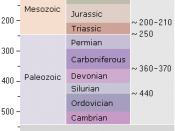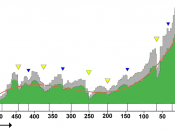It is believed Earth may be in the midst of another mass extinction, also known as 'The Sixth Mass Extinction'. This mass extinction is the first for 65 million years since the Cretaceous-Tertiary period. "It's the next annihilation of vast numbers of species. It is happening now, and we, the human race, are its cause' (Leakey, 1995). Every year, between 17,000 and 100,000 species vanish from our planet, which will result in fifty per cent of the Earth's species vanishing inside the next 100 years.
What is the cause of such huge numbers of species vanishing?â¢Deforestationâ¢Spreading agricultureâ¢Pollution: Fossil fuels, greenhouse gases, CO2 = global warming & climate changeâ¢Population increasing vastlyâ¢Overexploitation of species and natural resourcesâ¢Invasive species eg. Gorse in New ZealandRecords suggest that the worst mass extinctions can occur when temperatures are the warmest. By comparing early records of marine and terrestrial diversity with past temperature estimates, researchers from the Universities of York and Leeds found a close relationship between Earths climate and extinctions over the past 520 million years.
The result: higher extinction rates occur at higher temperatures.
Due to fossil fuels and greenhouse gases emitted by everyday human activity, earth is gradually warming up, which could mean the end of a number of different species. "Temperatures forecasted over the next century are within the range of the warmest greenhouse phases that are associated with mass extinction events identified in the fossil record" (Jenkins, 2007).
Four of the five past mass extinction events are related with warm greenhouse phases. During the End-Permian extinction event, the largest of all mass extinctions, 95 percent of animal and plant species were destroyed, which occurred through one of the warmest-ever climate phases. If global warming increases, which is very likely, our planet could have extreme threats against our species.
Population increase is...


